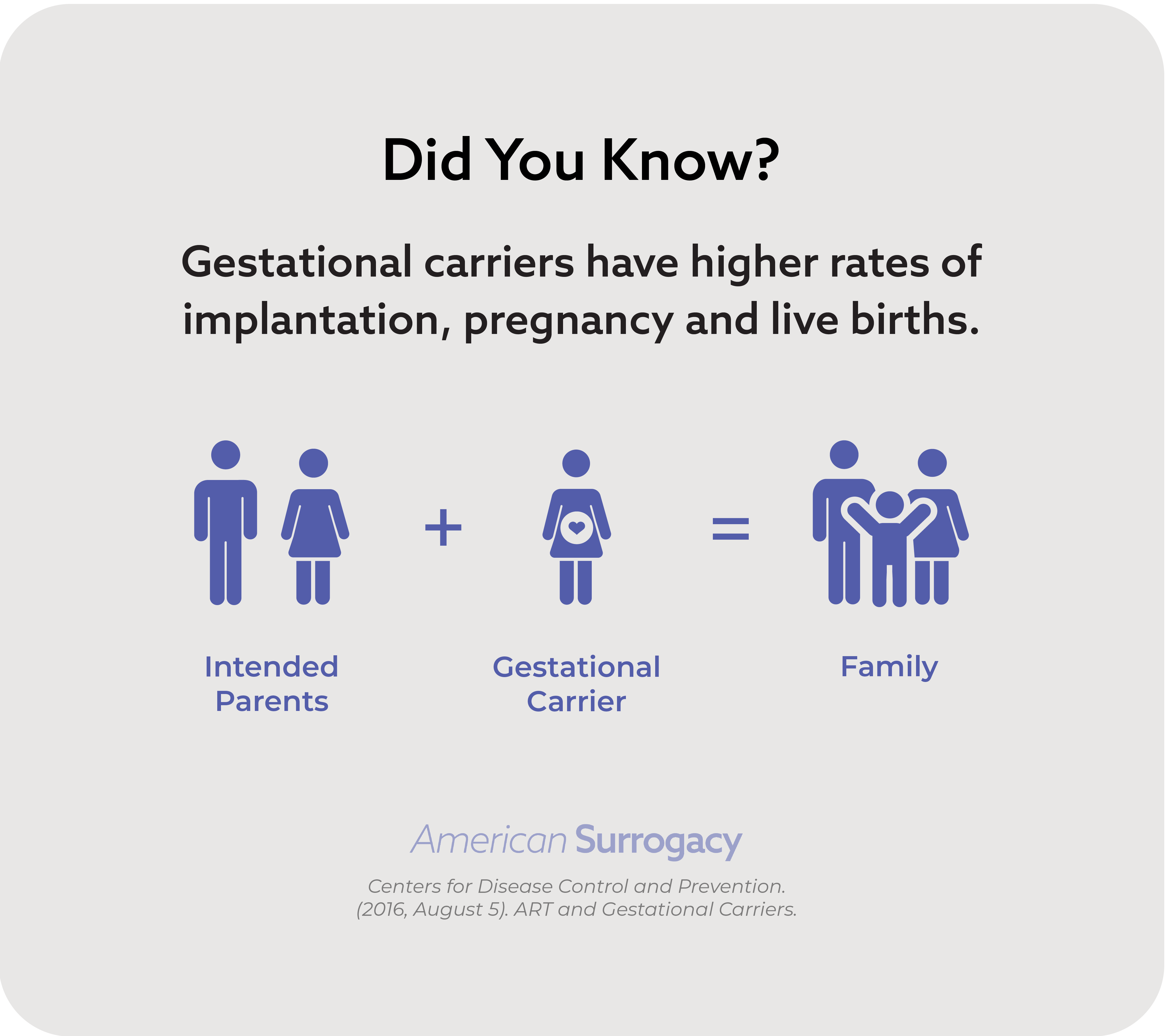Choosing surrogacy with frozen embryos is an effective way to build your family. This option lets you move forward without the extra stress or cost of more in vitro fertilization (IVF) treatments.
With the right surrogate and medical team, your embryo can be safely implanted, giving you the best chance to welcome your child into the world.
If you’re ready to take the next step in your surrogacy journey, reach out for more information. We can help you make your dream of parenthood a reality.
In the following article, you’ll learn about the process of using frozen embryos in surrogacy, the benefits it offers and the high success rates associated with this method of assisted reproduction technology.
Surrogacy With Frozen Embryos [Step-by-Step]
When you choose surrogacy with frozen embryos, each step is carefully planned to maximize your chances of a successful pregnancy. Here’s a step-by-step overview of what you can expect during this process:
- Step 1
The surrogate will take medications three to four weeks in advance of the transfer to ensure her body is ready.
- Step 2
An embryologist will carefully thaw the stored embryos and determine which one is the most viable.
- Step 3
Your fertility clinic will transfer the embryo to the surrogate’s uterus during a simple procedure.
- Step 4
In the weeks following the transfer, the surrogate’s medical team will confirm the embryo successfully implanted and the pregnancy is progressing normally.
Fresh vs. Frozen Embryo Transfer for a Surrogate
You may wonder whether to use fresh or frozen embryos for the surrogacy transfer. Here’s what you should know about each option:
Fresh
A fresh embryo transfer involves using embryos that haven’t been frozen. These are typically created through IVF, where the eggs are retrieved, fertilized and then transferred to the surrogate’s uterus within a few days. Some people prefer fresh embryo transfers because they avoid the freezing and thawing process.
However, fresh transfers require synchronization between you as the intended parent, the surrogate and your medical team.
Frozen
A frozen embryo transfer, on the other hand, involves thawing previously frozen embryos for transfer. This method is preferred for surrogacy due to its flexibility and convenience. Because the embryos are already created and stored, there’s no need to synchronize cycles or wait for egg retrieval.
There are several benefits to using frozen embryos in surrogacy:
- Time control
The average wait time for matching with a surrogate is one to six months. Using frozen embryos allows you to choose when you’re ready to grow your family.
- Cost savings
Surrogacy costs with a frozen embryo transfer are lower because you won’t have to undergo additional rounds of egg retrieval.
- PGT-A
If you haven’t already, you can pursue preimplantation genetic testing for aneuploidies (PGT-A) with frozen embryos. This testing can help select the healthiest embryos, increasing the chances of successful implantation and pregnancy.
Is It Possible to Get Pregnant With Frozen Embryos?
Yes, it is possible to achieve pregnancy with frozen embryos. It’s actually a common practice in surrogacy today. When embryos are created through IVF, they can be cryogenically frozen and stored for future use. This process, known as cryopreservation, involves freezing the embryos at extremely low temperatures to halt their development.
Modern advancements in cryopreservation have made it highly effective, ensuring that the embryos remain viable for many years. When the time is right, these embryos are carefully thawed and prepared to be transferred to a surrogate's uterus.
Surrogacy Pregnancy Success Rates With Frozen Embryos
According to the Centers for Disease Control and Prevention, surrogates tend to have higher rates of implantation, pregnancy and live births compared to traditional IVF patients. The frozen embryo transfer process is well-established, and with the added benefit of a healthy surrogate, your chances of success significantly increase.

Start the Surrogacy Process Today
You’re just a few steps away from starting your surrogacy journey. If you already have frozen embryos, you can be matched with a surrogate quickly. Don’t wait — fill out our form or call 1-800-875-BABY to learn how we can help you take the next step toward growing your family.